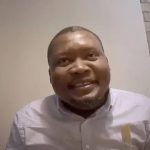Many Muslims in Nigeria marked this year’s Eid-el-Fitr with subdued celebrations as the rising cost of living, high food prices, and transportation costs limited their ability to celebrate in their usual manner.
Across the country, the economic crisis affected the festive mood, with Muslims in the northern region calling for prayers to address insecurity, hardship, and economic challenges. In Zamfara State, the turnout for Eid prayers was notably low, as fewer people could afford to transport themselves to prayer grounds. Residents also reported being unable to buy new clothes or prepare elaborate meals for their families.
Mainasara Mohammed, a resident of Gusau, lamented that for the first time, he could not afford new clothes for his wives and children, highlighting the impact of the economic downturn.
Senator Lawal Usman of Kaduna Central urged Muslims to use the occasion to pray for peace and prosperity in the country, while Islamic scholar Sheikh Abdulwahab Abdulkadir emphasized the importance of love, tolerance, and dedication to duty among the faithful.
In Gombe State, the Chairman of the Coalition of Northern Groups, Mohammed Deba, stated that the hardship remained unchanged from last year, saying, “The level of poverty has remained unabated.”
In Sokoto, the Liberty Progressive Association, a Muslim group, commended residents for maintaining peace during the celebration despite economic challenges.
Similar reports emerged from Borno, where residents noted that while security had improved, economic difficulties overshadowed the festivities. A resident, Kida Abdulsalam, said, “It has been about cutting costs. However, I must commend the security agencies for the peace we are currently enjoying.”
In the Southwest, Osun State witnessed light traffic on major roads as many residents stayed home. Some traders in Lagos, Ogun, and Oyo States experienced low sales, with a trader in Yaba market lamenting poor patronage. A food seller in Abule Egba noted that sales were lower than in previous festive seasons.
Meanwhile, the opposition Peoples Democratic Party blamed the ruling All Progressives Congress for the economic hardship, stating that Nigerians were struggling to celebrate Eid-el-Fitr due to poor governance.
Despite the economic difficulties, Muslim leaders and scholars called on Nigerians to remain hopeful and continue supporting one another in these challenging times.




